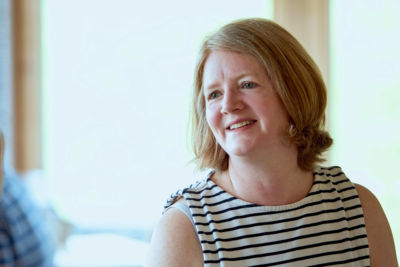sound is committed to reducing its environmental impact and carbon emissions as fast as possible. We believe that in order to limit the destruction caused by climate change, we need to look beyond carbon offsetting and at more urgent actions and lifestyle choices.
At the same time, unfair global economic practices keep part of the world’s population in poverty, and sound is thus committed to using Fairtrade products wherever possible.
We believe it is possible to establish and demonstrate a new and genuinely sustainable way of delivering the arts.
Exploring new ways of working
The climate emergency is the greatest challenge facing the world today, and as global leaders prepared to gather for COP26 our 2021 soundfestival programme highlighted the climate emergency through specially commissioned works and environmentally themed performances as well as a “no fly” commitment from performers in an effort to reduce carbon emissions.
We opened the festival with the World Premiere of Laura Bowler’s Distance (co-commissioned by sound, Spitalfields Music and Cheltenham Music Festival with the support of the Ernst Von Siemens Music Foundation and individual donors) a ground-breaking new work exploring our relationship with flying, the environment and climate change performed in Aberdeen by soprano, Juliet Fraser, with Talea Ensemble who were live-streamed into the performance space from New York, USA.

"That the piece worked at all was a breathtaking technical achievement, but it was Distance’s artistic ambitions that really wowed. Merging multiple video feeds, live and recorded sound, and an exquisitely strange sound world conjured through Bowler’s intricate music, it pranced nimbly between experiences of flight, and reflections on the data flow that was making the piece possible at all, with some self-deprecating humour thrown in lest that sound too po-faced. Distance felt like the unveiling of something truly important and inspirational."
David Kettle, The Scotsman, 2021
2021 festival artists undertook to be as green as possible while travelling to the festival using trains, electric cars and even bicycles to come to Aberdeen.
However, we encountered some challenges along the way and discovered that things don’t always go to plan when using ‘green’ transport.
Read more about the challenges of staging a "no fly" festival in an article from Classical Music Magazine.
"We all need to do our bit to help combat climate change but if we are really serious about climate change a lot more needs to be done to make green travel both more practical and affordable."
Fiona Robertson, Director of sound

While we realise there is still a lot of work to do, we are committed to continuing to work towards a more sustainable future and are proud of what we have achieved so far.
Find out more about some of our actions and plans in our Environmental and Ethical Policy & Action Plan.
Scottish Classical Sustainability Group
We recently joined the Scottish Classical Sustainability Group (SCSG), made up of over 30 members, including large symphony orchestras, small ensembles, festivals and individual musicians from across Scotland. Collectively we are working together towards net-zero emissions and a more sustainable future in the classical music sector.
We are proud to be part of the SCSG and a group of cultural organisations who believe we can play a key role in moving towards a net-zero future, and can lead the way for change across society as well as influence, inform and communicate with our audiences and those we engage with.
In July 2021, the Scottish Classical Sustainability Group launched the Scottish Classical Music Green Guide. Written collaboratively with learning and contributions from the 30+ members of the SCSG, this free guide contains knowledge and guidance on how to reduce carbon emissions in all aspects of your work.
Download and read the guide here.
Green Arts Initiative
sound is also a member of Creative Carbon Scotland’s Green Arts Initiative. More information about CCS and the Green Arts Initiative can be found at: www.creativecarbonscotland.com
Other useful links:
https://www.zerowastescotland.org.uk/
https://juliesbicycle.com/







